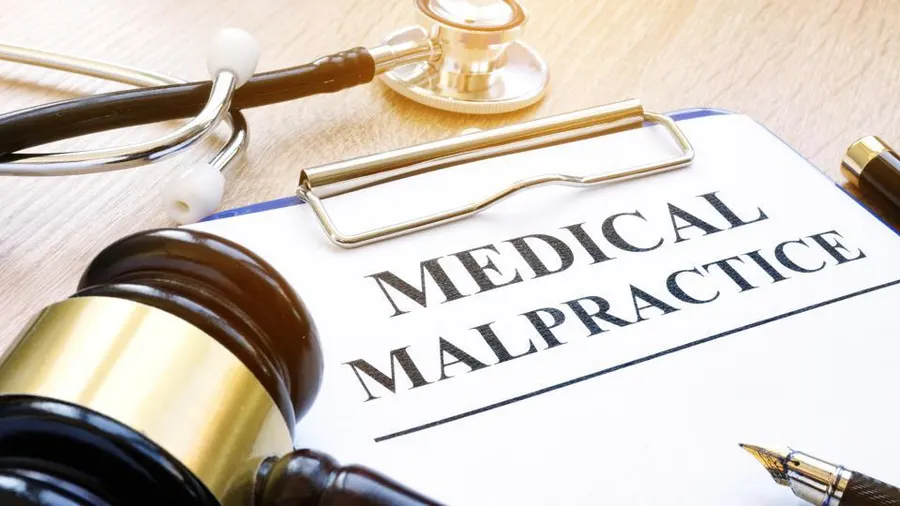Effective Defense Tactics for Drug Charges in 2024
Effective defense tactics for drug charges in 2024 include challenging evidence, proving illegal search, and demonstrating lack of intent.

In 2024, an effective defence strategy against drug accusations will be more important than ever because of the changing legal environment and increased law enforcement activity. Anyone facing drug charges needs to be ready to defend themselves, as drug laws and enforcement tactics become more intricate. This entails becoming aware of your rights, comprehending the particular charges, and utilizing the most recent and potent defence techniques. Having the appropriate information and legal representation can make a big difference in the way your case turns out, regardless of the seriousness of the charges against you—from simple possession to more serious trafficking charges.
It takes more than just legal knowledge to navigate the complexities of drug accusations; proactive thinking and strategic thinking are also necessary. There are a number of strategies that can be used to develop a strong defence, ranging from contesting the evidence to raising concerns about the validity of the search and seizure. In 2024, keeping up with current legal precedents and employing creative defence tactics can have a significant impact on the proceedings in the courtroom. This post will walk you through the best defence strategies for drug charges, offering you or your loved ones enlightenment and useful guidance to help you meet these obstacles head-on.
Contents
- 1 Effective Defense Tactics for Drug Charges in 2024
- 2 Common Defense Tactics
- 3 Challenging the Evidence
- 4 Illegal Search and Seizure
- 5 Chain of Custody
- 6 Lack of Intent
- 7 Entrapment Defense
- 8 Medical Necessity Defense
- 9 Rehabilitation Programs
- 10 Hiring an Experienced Attorney
- 11 Building a Strong Defense Strategy
- 12 Pre-Trial Motions
- 13 Plea Bargaining
- 14 Conclusion
- 15 FAQs
Effective Defense Tactics for Drug Charges in 2024
Definition and Types of Drug Charges
Drug accusations cover a broad spectrum of offences, from manufacturing and trafficking to possession and distribution. The kind of substance, the amount used, and the existence of any prior convictions can all affect how serious these accusations are.
Legal Consequences
The consequences of drug charges can be severe, including hefty fines, lengthy prison sentences, and a permanent criminal record. Understanding the potential penalties is the first step in preparing a robust defense.
Common Defense Tactics
Challenging the Evidence
One of the most effective ways to fight drug charges is by challenging the evidence presented by the prosecution. This can involve questioning the validity of the evidence, its collection process, and its handling.
Proving Illegal Search and Seizure
The Fourth Amendment protects citizens from unreasonable searches and seizures. If the evidence against you was obtained without a proper warrant or probable cause, it might be possible to have it dismissed.
Questioning the Chain of Custody
The chain of custody refers to the documentation of evidence handling from the time it is collected until it is presented in court. Any breaks or discrepancies in this chain can lead to the evidence being deemed inadmissible.
Demonstrating Lack of Intent
Intent is a crucial element in many drug-related offenses. Demonstrating that you had no intention of committing a crime can be a powerful defense strategy.
Proving Entrapment
Entrapment occurs when law enforcement induces a person to commit a crime they would not have otherwise committed. If you can prove entrapment, it can be a valid defense.
Claiming Medical Necessity
In some cases, individuals use drugs for medical purposes. If you can provide evidence that your drug use was medically necessary, it might be possible to avoid conviction.
Seeking Rehabilitation Programs
Courts often view individuals who seek rehabilitation favorably. Enrolling in a rehabilitation program can not only help in your personal recovery but also positively impact your legal case.
Challenging the Evidence
Scrutinizing the Prosecution’s Evidence
It’s essential to carefully examine all evidence presented by the prosecution. This includes lab reports, witness statements, and any physical evidence. An experienced attorney can identify weaknesses and inconsistencies.
Importance of a Thorough Investigation
A thorough investigation by your defense team can uncover evidence that supports your case. This might involve interviewing witnesses, reviewing surveillance footage, or conducting forensic analysis.
Illegal Search and Seizure
Understanding Your Fourth Amendment Rights
The Fourth Amendment protects against unreasonable searches and seizures. Understanding these rights is crucial for building a defense based on illegal search and seizure.
Case Examples of Illegal Searches
Reviewing past cases where evidence was dismissed due to illegal searches can provide insights into how to apply this defense tactic in your situation.
Chain of Custody
Importance of Proper Evidence Handling
Proper evidence handling is critical to maintaining its integrity. Any mishandling or gaps in the chain of custody can lead to the evidence being challenged.
How to Identify Breaks in the Chain of Custody
Identifying breaks in the chain of custody involves meticulously reviewing the documentation of evidence handling. An experienced attorney can spot inconsistencies that may not be immediately apparent.
Lack of Intent
The Role of Intent in Drug Charges
Intent is a key element in proving many drug charges. Without intent, the prosecution’s case can weaken significantly.
How to Prove Lack of Intent
Proving lack of intent can involve presenting evidence of your actions, statements, and circumstances that indicate you did not intend to commit a crime.
Entrapment Defense
Definition of Entrapment
Entrapment occurs when law enforcement persuades someone to commit a crime they would not have otherwise committed.
Proving Entrapment in Court
Proving entrapment involves showing that law enforcement’s actions were overly persuasive or coercive, leading you to commit a crime.
Medical Necessity Defense
What Constitutes Medical Necessity
Medical necessity refers to the use of drugs for legitimate medical reasons. This can include prescribed medications or substances used to alleviate severe medical conditions.
Case Studies Supporting Medical Necessity
Reviewing case studies where medical necessity was successfully used as a defense can provide a framework for your own case.
Rehabilitation Programs
Benefits of Seeking Rehabilitation
Seeking rehabilitation can demonstrate to the court that you are taking proactive steps to address any substance abuse issues, which can positively influence your case.
Legal Advantages of Rehabilitation
Participation in a rehabilitation program can sometimes lead to reduced charges or alternative sentencing, such as probation, instead of incarceration.
Hiring an Experienced Attorney
Importance of Legal Representation
An experienced attorney is crucial in navigating the complexities of drug charges. They can provide expert advice, build a strong defense, and represent you in court.
How to Choose the Right Attorney
Choosing the right attorney involves considering their experience, track record, and expertise in handling drug-related cases.
Building a Strong Defense Strategy
Steps to Create a Robust Defense
Building a robust defense involves gathering evidence, identifying weaknesses in the prosecution’s case, and developing a strategy tailored to your specific situation.
Importance of Collaboration with Your Attorney
Collaboration with your attorney is vital. Open communication and trust can significantly enhance the effectiveness of your defense.
Pre-Trial Motions
Types of Pre-Trial Motions
Pre-trial motions can include motions to suppress evidence, dismiss charges, or request a change of venue. These motions can shape the course of your trial.
How Pre-Trial Motions Can Help Your Case
Successful pre-trial motions can lead to the exclusion of crucial evidence, weakening the prosecution’s case and potentially leading to a dismissal of charges.
Plea Bargaining
Understanding Plea Bargaining
Plea bargaining involves negotiating with the prosecution to plead guilty to a lesser charge in exchange for a lighter sentence.
Pros and Cons of Accepting a Plea Deal
While plea bargaining can result in a reduced sentence, it also means accepting a conviction. It’s essential to weigh the pros and cons carefully.
Read More: What Happened in the Ashton vs. Whataburger Accident Case?
Conclusion
In 2024, defending against drug allegations calls for a calculated and deliberate move. Through comprehension of the legal system and utilisation of potent defence strategies, individuals can greatly enhance their prospects of a successful resolution. There are many tactics available to develop a solid defence, ranging from proving illegal search and seizure and contesting the authenticity of the evidence to proving lack of intent and investigating rehabilitative possibilities.
It is imperative that you seek the counsel of a knowledgeable lawyer who can handle the nuances of your case and offer customised advise. Recall that every case is different and that having a solid defence can make all the difference. When facing drug charges, you can better defend your rights and future by being knowledgeable and aggressive.
FAQs
What Should I Do If I’m Arrested for Drug Charges?
If you’re arrested for drug charges, remain calm, assert your right to remain silent, and contact an experienced attorney immediately.
Can a Drug Charge Be Dismissed?
Yes, a drug charge can be dismissed if the evidence is insufficient, improperly obtained, or if there are procedural errors in the case.
How Long Does a Drug Charge Stay on My Record?
The duration a drug charge stays on your record varies by jurisdiction and the nature of the charge. Some charges may be eligible for expungement after a certain period.
What Are the Costs of Hiring a Defense Attorney?
The costs of hiring a defense attorney can vary widely based on their experience, the complexity of the case, and the region. It’s essential to discuss fees and payment plans upfront.
How Can I Support a Loved One Facing Drug Charges?
Supporting a loved one facing drug charges involves providing emotional support, helping them find a qualified attorney, and encouraging them to seek rehabilitation if necessary.



